Phil shares a couple of places in Italy you won’t find in a guide book – food that reduces you to tears – and what does it take to get your travel photos on the World Nomads Instagram page.
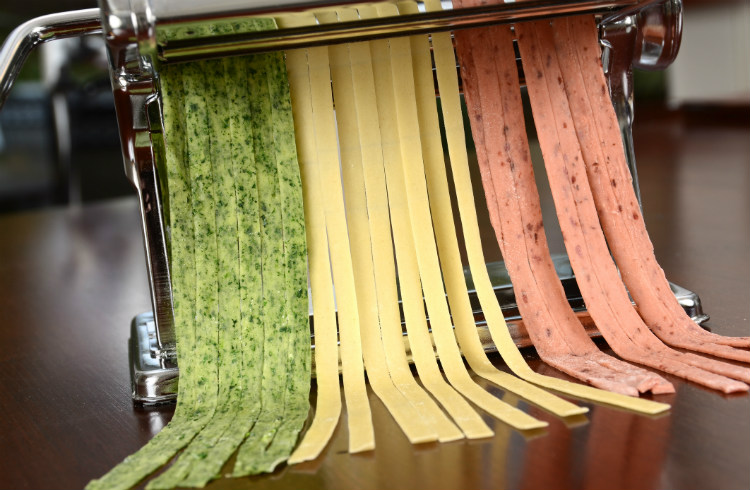 Photo © sbossert
Photo © sbossert
Listen Now
Episode 11: Italy
Italy is on the Mediterranean Sea sharing borders with France, Switzerland, Austria, Slovenia, San Marino and Vatican City. With a population of around 61 million, you’ll never guess how many cups of espresso they consume!
What’s in the Episode:
00:12 Intro
01:50 Phil’s Quiz Question
02:06 Elena on the sandwich that made her cry – “…and I didn't tell him what I wanted at all, I was like, "you just make your sandwich." And it had like six kinds of cheese on it, probably four kinds of meat. A dozen different types of salads and greens. Some tomatoes. Fresh herbs from the harden nearby. It was embarrassing, I got my sandwich, I took a bite of it, and I had to go sit in a corner like far away from the people because I was crying.”
11:33 Catching up with our world nomads
12:08 Madeline Jhawar runs Italy Beyond the Obvious it’s a travel planning service just for Italy – but wait until you hear Phil launch into his pronunciation of a place he stumbled on while in the country!
18:00 Travel news and the farty passenger that forced an unscheduled stop
21:31 Mauro Mazz with Kim’s “speak to me” in Italian request
31:10 Word Nomads Isaac Entry with tips on how to get your travel pics featured on our Instagram page
35:46 Quiz Question answer
37:00 What’s next in Episode 12
Who’s on The Show:
Mauro Mazz from Crab in the Air a blog designed to help you find “fantastic ideas for visiting the most amazing locations”.
Madeline Jhawar who runs Italy Beyond the Obvious it’s a travel planning service just for Italy
Elena Valeriote The World Nomads Passport to Plate program winner. This is a photo of Caseificio Borderi who made the sandwich that made her cry. You can check them out here.
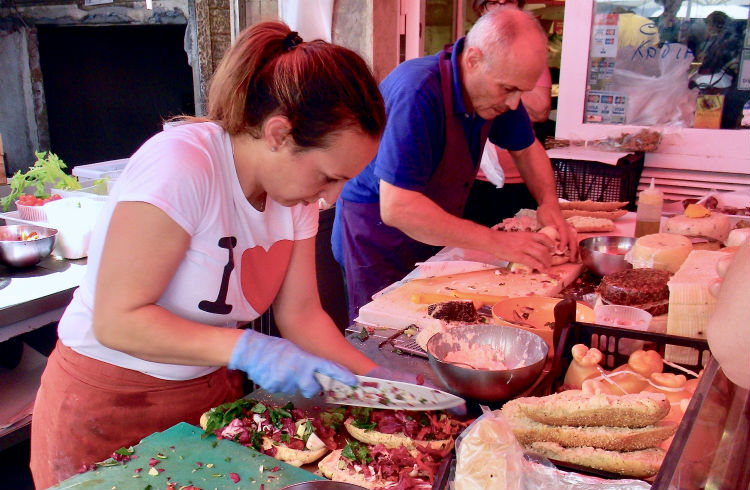
Resources and Links
Scholarships Newsletter: Sign up for scholarships news and see what opportunities are live here.
Follow World Nomads on Instagram for the latest stories, and #WorldNomads for your chance to be featured.
Want to Share This Episode?
Copy this code onto your web page:
<iframe width="100%" height="200" src="https://player.whooshkaa.com/player/episode/id/174722?visual=true&sharing=true" frameborder="0" style="width: 100%; height: 200px"></iframe>
Want to Talk to us?
We want to hear from you! If you have any travel insurance questions to Ask Phil, want to give us feedback on the episode, or have suggestions for topics you'd like us to cover, email us at podcast@worldnomads.com
Sign up for Podcast news in the newsletter box on the right-hand side.
About World Nomads & The Podcast
Explore your boundaries and discover your next adventure with The World Nomads Podcast. Hosted by Podcast Producer Kim Napier and World Nomads Phil Sylvester, each episode will take you around the world with insights into destinations from travelers and experts. They’ll share the latest in travel news, answer your travel questions and fill you in on what World Nomads is up to, including the latest scholarships and guides.
World Nomads is a fast-growing online travel company that provides inspiration, advice, safety tips and specialized travel insurance for independent, volunteer and student travelers traveling and studying most anywhere in the world. Our online global travel insurance covers travelers from more than 135 countries and allows you to buy and claim online, 24/7, even while already traveling.
The World Nomads Podcast is not your usual travel Podcast. It’s everything for the adventurous, independent traveler. Don’t miss out. Subscribe today.
Speaker 1: The World Nomads Podcast, it's not your usual travel podcast. It's everything for the adventurous independent traveler.
Kim: I'm laughing already. Thanks for tuning in. I can't even speak at the start of the podcast. It's the World Nomads Podcast, and we're getting quite the following now, Phil, aren't we?
Phil: Oh, yeah, absolutely. We got a few people out there that love us. Thanks, mum.
Kim: Exactly. Now, I should mention, too, our travel insurance and lifestyle brand. Look, in this episode, we're off to beautiful Italy.
Phil: [00:00:30] I know. Does anybody not know where Italy is? Just in case you're confused, it's in the Mediterranean. It's that boot-shaped place. Borders France, Austria, Slovenia. Within it is San Marino, a very small country, and the smallest country in the world, the Vatican City.
Kim: Sorry. I've still got the giggles. Wait until ... It will all become very clear. It will become very clear.
Phil: And [inaudible 00:00:53] I get very embarrassed by this, so hang in there.
Kim: Yes. Yeah. So who's on the show? Madeline Jhawar. She runs [00:01:00] Italy Beyond the Obvious, and it's a travel planning service just for Italy. And Madeline's travel philosophy is not only to see Italy but to feel it, to hear it, to do it, to keep it simple. Very much World
Phil: Very much. I love it.
Kim: So [Mauro 00:01:13] Mazz, oh, I love talking to Mauro. He was so sexy sounding. He runs the-
Phil: You've gone all A Fish Called Wanda on me right there.
Kim: I do. This is A Fish Called Wanda. He runs a blog with his wife called "Crab in the Air." He's Italian, and yes, I do have one [00:01:30] of those "speak to me in Italian" moments. And Phil, before you judge me, this episode does belong to you with this classic blooper that's coming up that you'll hear that in our chat with Madeline. Plus, World Nomads contributor Elena tells us about the sandwich that made her cry. Travel news, and let's do it, kick it off with Phil's quiz question.
Phil: All right, it's about Italy. I love coffee, and I love Italian espresso. I have a fabulous little Italian machine at home as well. But how much espresso coffee is consumed [00:02:00] in Italy each year? How much espresso in Italy each year?
Kim: End of the episode, you'll find that out. When you think Italy, you think food. Now, this lady was the winner of our Italy Passport & Plate program, and because you can whack it on so well, you can introduce her.
Phil: Elena Valeriote.
Kim: There you go.
Phil: Nearly. Nearly, nearly [crosstalk 00:02:22].
Kim: Nearly got it. Yeah. Hi, Elena. How are you?
Elena Valeriote: I'm great. Thank you. How are you both?
Kim: Well, we're well. But tell me about the Passport & Plate program. What [00:02:30] did you do?
Elena Valeriote: Yeah. It was back in 2014, and it was one of the best things that ever happened to me. I went to Cinque Terre, Italy, which is up on the northern coast, for a little over a week, about a week and a half. And I spent my days making some travel videos, just short films mostly focused on Italian food. And it was a lot of eating, a lot of drinking, sunshine, and music, and everything good.
Kim: Did you put on weight?
Elena Valeriote: [00:03:00] Actually, no, because the "Five Cities," so Cinque Terre means the "Five Cities" in Italy, or "Five Earths" to be correct, but they are located on the top of these really, really tall hills, and so there [inaudible 00:03:18] cliffs that drop off into the coast, and I hiked between several of the hills. Did a lot of running and walking, so as much as I was eating I was working it off, too.
Phil: But was there not a little [00:03:30] fishing expedition on a boat that ...
Elena Valeriote: Yes.
Phil: She didn't look very good.
Kim: Oh, really?
Phil: She did a face in the videos.
Kim: Tell us.
Elena Valeriote: I know.
Phil: Go on.
Elena Valeriote: I couldn't believe that that was the whole subject of one of the videos, but yeah. As much as I love to travel and to constantly in motion, my body does not. I don't do especially well with motion sickness on anything, but especially boats. And so one of the days, I had the joys [00:04:00] of being invited to hop boat, which anyone else would be pretty thrilled about, and I was excited for, but I ended up getting pretty dizzy and had to lie down in the middle of the boat for most of the excursion.
Phil: But I have to tell you, the film crew we sent with her, they said she was a real trooper about it, so-
Kim: Oh, really?
Phil: Yeah. It's good.
Kim: Really? So you don't do boats, but you do food. So tell us what you learned about food in Italy.
Elena Valeriote: Well, the thing about food in Italy is that it's so fresh and so [00:04:30] much of it is local because Italians take this incredible pride in their food. So in Cinque Terre, they have what is traditionally called poor food. They say that it's very simple food, but it just ... I mean, you take a couple ingredients like lemons, basil, potatoes, and some anchovies, and you throw it all in a dish, and it's just exquisite. I mean, these people know what they're doing. And you dash on some olive oil and some fresh honey.
I mean, the thing about the trip [00:05:00] was that every day, I was in an olive grove or a lemon grove or on a fishing boat, and I was surrounded by this food that was coming right from there. And so everything just tasted alive and vibrant. And that's what I found in all of my travels in Italy, that the food is just incredibly of the place, and they take such a pride in preparing it that you're going to have a good meal no matter what.
Kim: Yeah. It's a real family experience, too, isn't it?
Elena Valeriote: Yes. Yeah, actually at one of the ... I spent [00:05:30] several afternoons in kitchens in Cinque Terre on this trip, and one of the times I was in the kitchen with three generations. So I had a grandmother, a daughter, and her granddaughter all in the kitchen together, and we were cooking, and it was wonderful. It was very Italian to have all of the family there.
Phil: We're heated from the awful pronunciation that I did of your name, but there's an Italian background, so was that the part of Italy that your family was from? Or they were from another part?
Elena Valeriote: [00:06:00] Both of my family, my mother
Kim: Tell me about pizza. Did they really invent pizza, the Italians?
Elena Valeriote: I don't actually know the answer to that entirely, but-
Kim: Hang on. Hang on, Elena, Phil will. Phil knows everything.
Elena Valeriote: Tell me, Phil.
Phil: [00:06:30] Yes. The Margherita pizza is very definitely an Italian invention because it's the colors of the Italian flag with the white cheese, the red tomato base, and the green basil leaf or basil leaf as you ... And it was invented as a dish for Queen Margherita, hence it's called Margherita.
Kim: Right. Is there any-
Phil: I'm sorry.
Kim: Is there anything Phil doesn't know?
Phil: I'm sorry.
Elena Valeriote: I have heard that story, but it's one of those things you have to wonder if it's an Italian [00:07:00] myth. But I know that there are, and particularly in Naples, they've come up with a whole definition of what a pizza is, and it's a touchy topic depending on where you go.
Phil: Well, I was there a couple of years ago, and I've got young kids. They would've been five and nine at the time, so it was pasta one day, pizza the next for like two weeks. And with gelato at the end of every one of them, but we were doing a lot of walking, too. And they said the best pizza they have ever had in their lives was [00:07:30] in Naples, of course. The home of it.
Kim: Well, of course. Of course. What are some of the rules? I've been told you can't have a cappuccino with a meal.
Elena Valeriote: Yeah. There are quite a lot of rules, and it takes some time to learn them when it comes to food etiquette in Italy. The cappuccino for sure is one. I love a good cappuccino. It's something I definitely picked up in Italy, but you are supposed to have it on its own, perhaps with a croissant or a piece of toast, maybe with Nutella [00:08:00] on it, in the morning, but absolutely not with a meal and never after 10:00 a.m.
Phil: Can I ask one question? You're quite a well-traveled person as well, Elena, so what's your secret to travel? What do you try and do that makes travel the best it can be for you?
Elena Valeriote: For me, I plan all of my travel around food. Maybe I don't pick the city necessarily based on the food, but when I know where I'm going, I will [00:08:30] make an itinerary for my day that is essentially what is going to be the best thing I eat that day. And so I'll pick out, what's the best place that makes bread in this city? And then I will start my day there, and I'll get a good coffee and some good toast, and then it's guaranteed to be a good day.
Kim: In all your travels then, which country or which nationality has the best food?
Elena Valeriote: I've got to be partial to Italy, of course.
Kim: Correct answer.
Elena Valeriote: [00:09:00] Yeah. I can't even tell you. I spent two weeks in Sicily at one point, which was incredible, and had multiple life-changing experiences when it comes to food. I actually had a sandwich that made me cry.
Phil: What?
Elena Valeriote: Yeah. It was so moving. It was the best thing I've ever eaten, and I had the best pizza of my life in Sicily.
Phil: No, no, no, no. What was in the sandwich? Come on.
Elena Valeriote: Oh, it was probably [00:09:30] like 20 ingredients. It was not a slap-it-together sort of sandwich. It was this wonderful little place down in Syracuse right near the water. And you stand in line, which is the only time you're going to see Italians standing in line for food because that's very, I think, a California or American thing generally to think food is worth standing in line for, but this place is worth it.
And you stand in line, and as you're standing there, there's a little counter out front, and there's this little old man standing there. [00:10:00] And he's there pretty much every day because I follow them on Instagram, so you're guaranteed to meet him pretty much if you go there. And he's there with his whole family. I met them all. There's mother, grandmother, daughter, husband, children running around, and it's the older man that's making the sandwiches.
He's got this whole selection of ingredients in front of him, and he just pulls everything together. I didn't tell him what I wanted at all. I was like, "You just make your sandwich." It had like [00:10:30] six kinds of cheese on it, probably four kinds of meat, a dozen different types of salads and greens, some tomatoes, fresh herbs from the garden nearby.
Phil: I know what you mean. I'm with you on it.
Kim: I cannot believe you cried. That's so good.
Elena Valeriote: It was embarrassing. I got my sandwich, I took a bite of it, and I had to go sit in a corner far away [00:11:00] from the people because I was crying. You got to go. Got to go to Sicily.
Kim: Well, yeah, on the list. Thank you so much for the chat.
Elena Valeriote: Well, thank you very much.
Kim: Now, we don't have a photo of the actual sandwich that made Elena cry, but we will share a photo of the place that makes these tearjerkers and a link to their website, and we'll put that in show notes.
Phil: I want one now. I just want to go and have one.
Kim: So do you need to cry on a shoulder? On a shoulder?
Phil: [crosstalk 00:11:30] [00:11:30] cry.
Kim: Time to check in with our World Nomads.
So I've come across these skaters in the middle of Sydney. Where are you from?
Speaker 5: I'm from the UK. I'm electrician. I've got a sponsorship lined up, and yeah, it's a really cool place. I'm fortunate enough to know some really cool people here already that rollerblade, that are some of the best in the world, so-
Kim: Did you pack your rollers [inaudible 00:11:52]?
Speaker 5: Yeah. Oh, yeah. I've got so many pairs of these. Yeah. I'm going to ship them all. I've just brought the ... I probably buy some [00:12:00] every six months, if not four, depending on what new ones come out. And I'll probably spend between four to 600 pounds each time.
Kim: Madeline Jhawar runs Italy Beyond the Obvious. It's a travel planning service, and it's just for Italy. But wait until you hear Phil launch into his pronunciation of a place he stumbled on while he was in Italy. It's coming up. We kicked off by asking how a Canadian became an expert on travel in Italy.
Madeline Jhawar: I [00:12:30] spent about five years in Italy, and one of those years, I was working as a tour guide for a hiking and biking company called Butterfield & Robinson. So I guided eight-
Kim: Why did you call your business "Italy Beyond the Obvious?"
Madeline Jhawar: I think that [00:13:00] that's what I was getting requests for. I had such a deep understanding of Italy, and when I started giving advice to people, I just got so sick of talking about Rome, Florence, and Venice all the time. Not because they're not worth talking about but because just over and over and over and over again, I just got ... There's so much more in Italy. And the famous sites are worth seeing absolutely, totally endorse that, but there's so much [00:13:30] more.
Phil: So give us a few examples. What is not obvious that's fantastic?
Madeline Jhawar: I would say there is kind of two ways to think about not obvious and fantastic. One way is to see the main sights in a different way. So you can still see the main sights but with a beyond the obvious approach, and so you might still see the Colosseum in Rome, and you might still see the Uffizi Gallery in Florence, but the approach is different. And then the second beyond the obvious way is literally [00:14:00] to just go to different places.
I would also add that Italians are the biggest tourists of Italy, and so there are so many cities in Italy that are super, super famous that foreign tourists just aren't aware of. There's like 20 towns that, for the Italians, are equally as famous. And so those are really nice to send foreign travelers because even if you get there as a foreign traveler ... Let's [00:14:30] just take, for example, Ravenna, which is on the Adriatic coast a couple of hours south of Venice, and it's a huge, important place for art, for Byzantine mosaics. And they've just got these jaw-dropping mosaics, and they're all religiously themed, and they're very gold, and they're very kind of blingy. But if you love mosaics, I mean, you'll just blown away by these mosaics.
But Ravenna is a really, really ... No Italian will ever tell you that Ravenna is off the beaten [00:15:00] track. They're super famous and super important. But as a foreign traveler, if you go to Ravenna, you'll be surrounded by Italians, and you'll think this is totally off the beaten track, but the Italians are from Milan, and they're from Rome. They're not locals. They're not locals from Ravenna.
Phil: I look for those sorts of things, and I have to say, a few years back I was on the Amalfi Coast. I was in Ravello, which is very high up on a mountain. And I was looking down the coast, and I'm going, "What are those places over [00:15:30] there? And why aren't they in my guide book?" And I think it was Minora and Majora, I think they are, and they are very popular with Italian tourists, but they're just not in the Western guidebooks.
Kim: They can't be called that.
Madeline Jhawar: Yeah. Minori and Maiori. Yeah. They are. They're-
Phil: There you go.
Kim: Come on, guys. You know what that's called.
Phil: Yeah, yeah. Downstairs stuff.
Kim: You can't [crosstalk 00:15:54].
Phil: No. No. Okay. But the opposite of that. They were beautiful, yeah.
Madeline Jhawar: Yeah.
Phil: Oh, no. Kim's lost it. Anyway.
Kim: There's no [00:16:00] place called that, surely.
Phil: There is.
Madeline Jhawar: Yeah. It's Minori and Maiori, yeah. It's M-I-N, Minori-
Kim: Yeah, but that's not what Phil said.
Madeline Jhawar: Oh.
Phil: Okay. All right then.
Kim: All right, let's get back to what was ... What guidebook were you looking at? All right, let's get back to it. How would you sum up Italy?
Madeline Jhawar: Probably in my [00:16:30] world, it would be bucket list of some sort. It would have something to do with bucket list. I get people all the time that are like, the dream trip, bucket list. And it doesn't matter your budget, it doesn't matter your interests, it doesn't matter who you're traveling with, whether it's your 90-year-old grandmother who can't walk more than a block or your one-year-old or two-year-old toddler, there's something that-
Phil: Who refuses to walk more than a block, yes.
Madeline Jhawar: Right. Yeah. I mean, honestly, there is something [00:17:00] for everyone.
Kim: Good one, Phil.
Phil: Yeah, all right.
Kim: Come on, can we hear that? Replay that moment when your cred as an independent but very adventurous traveler came into question.
Phil: "What are those places over there? And why aren't they in my guide book?" And I think it was Minora and Majora, I think they are, and they are very popular with Italian tourists, but they're just not in the Western guidebooks.
Kim: [00:17:30] They can't be called that.
Madeline Jhawar: Minori and Maiori, yeah. It's M-I-N, Minori-
Kim: Yeah, but that's not what Phil said.
Madeline Jhawar: Oh.
Phil: Okay. All right then.
Kim: That still cracks me up. I can't believe it. Do you think Madeline ... There was a slight giggle there, but she probably wasn't operating at a 13-year-old level like you and
Phil: And she also could not see the look on your face that I could.
Kim: Yeah, exactly. My eyes popped. Good one, Phil. Let's get to travel news.
Phil: All right. Can you [00:18:00] name Italy's national airline?
Kim: I can.
Phil: Go on.
Kim: Italia.
Phil: Alitalia. Yeah, for now, but the bankrupt and much-troubled airline is facing competition from Air Italy, which intends to take over the mantel as the national carrier. The airline will have its home not at Rome's Fiumicino Airport but in Milan. Air Italy, formerly known as Meridiana, once tried to merge with Air Alitalia, so they win.
The "Beast from the East," a severe winter weather storm that lashed [00:18:30] the UK and Western Europe last week, caused flight cancellations, long delays of both forms of transport, planes and trains and cars and everything, and brought rare snow to Rome.
Kim: Did you see the footage of the priests that were-
Phil: The priests, yeah.
Kim: ... throwing snowballs?
Phil: Throwing snowballs in St. Peter's Square. Absolutely. Wonderful. A flight on the low-cost Dutch airline Transavia heading to Amsterdam from Dubai was forced to make an unscheduled stop in Vienna after a dispute broke out over a passenger passing gas. [00:19:00] Okay.
Kim: What? That's [inaudible 00:19:06] flights.
Phil: Yeah. Air traffic control, this is Transavia flight 111, and we have to land because of a farting passenger.
Kim: It must've been a smelly one.
Phil: A couple of the passengers who complained to the cabin crew were ejected for becoming unruly, but two other passengers who were in the same row and said they weren't part of it, they got kicked off as well. Other passengers have said on social media that they thought the cabin staff overreacted a little bit, but the elderly gentleman [00:19:30] who was the gassy elderly gentleman was allowed to stay on board. Gassy passengers notwithstanding, Kim, do you enjoy airline travel? I mean, do you like the experience of being on a plane?
Kim: Love it. Love it.
Phil: Love it? Okay. Well, this is for you. A Japanese company is giving people who love the experience a chance to indulge their passion without going anywhere. You can book yourself a seat in a mock aircraft cabin that doesn't go anywhere. You get served airline food, you hear the safety announcements, you watch in-flight movies and listen to the rumble of the jet engines [00:20:00] for a few hours while enjoying it through those virtual reality goggles.
Kim: I'm in Japan in June. Should I go and check this out?
Phil: Yes, please. Because, "What the actual?" is my question on that one. What?
Kim: Why?
Phil: There is a new world's most powerful passport, meaning passport that allows you visa-free entry into the most countries. Germany's held the top dog spot for many years, but it slipped to third in a new count. Visa-free access to 162 [00:20:30] countries goes to the holders of a passport from, and it's a tie, South Korea and Singapore. Germany's third with 161, just one less. The UK's next with 159. At the other end of the scale with visa-free access to just 26 nations is Afghanistan. But don't start celebrating yet, Miss Kim. Hang on. You could be South Korean.
Kim: I know.
Phil: Have you got the South Korean passport, Miss Kim.
Kim: I know. Everyone loves it. Whenever I have a Korean taxi driver and [00:21:00] I get chatting, they know my name's Kim, it's like we're instant family. It's great.
Phil: Passports with lots of visa-free access are targeted by criminals for the obvious international crime-related reasons, and that's why
Kim: [00:21:30] That wraps up travel news.
Phil: Thank you.
Kim: Maro Mazz, he runs a blog with his wife called "Crab In The Air," and he's Italian, and yes, I have one of those "speak to me in Italian" moments.
Well, good evening from Australia.
Maro Mazz: Good morning from Italy.
Kim: It wouldn't be a chat with Italy, and I don't think that I've done this in any other podcast, without having a glass of wine. Am I in the right company?
Maro Mazz: That is correct. That is totally correct. It's [00:22:00] early in the morning, but yeah, it's getting in that direction.
Kim: Well, when I was in the Czech Republic, we went into a café, and it was 9:00 in the morning, and we were grabbing something to eat, obviously, looking for something that was breakfast-like. And there were these three old women. I'll never forget it. They were in their mid- to late-70s, if not in their 80s, and they were chugging on red wine. And I thought, "This is the place I'm going to retire."
Maro Mazz: That's true. Yeah. I think I remember something as [00:22:30] well being in Prague. Yeah, there I think it's more common. In Italy, yeah, it happens, but it's mostly on, let's say from mid-day on. In the morning, you'll find a lot of cappuccino, a lot of coffee drinking, a lot of people in those where we call bars in Italian, but it's actually a coffee shop.
Kim: Now, I'm getting this mixed accent. Tell us, what's your history?
Maro Mazz: Yeah, sure. Well, I'm Italian, [00:23:00] but been traveling across the globe a lot for a lot of years since I was a kid. And then also now the last 10 years since I met my wife, so we've been traveling a lot and going from place to place and as soon as possible whenever possible. Currently in Italy, but of course always going around exploring new [00:23:30] places from Europe, around different areas here, which is very convenient to explore, to Southeast Asia, which we are truly falling in love, with Thailand especially. Been there like seven times now, eight times I think, and then other countries around the world.
Kim: We'll get into that, but you're married, I'm married. Have you watched the movie A Fish Called Wanda?
Maro Mazz: A Fish Called Wanda, no, [00:24:00] I haven't.
Kim: It doesn't matter. Just saying something to me in Italian.
Maro Mazz: [Italian 00:24:07].
Kim: Oh. In fact, I'm translating. Did you say, "I'd like to disappear?"
Maro Mazz: Said, "What would you like to know?"
Kim: "Know," all right. Well, I just wanted to hear the accent
Maro Mazz: Well, I think that Italy is [00:24:30] really a melting pot of diverse experiences. So there are, I would say, at least three reasons for which people love and look forward to visit Italy. I mean, I identify the cultural, historical aspect, which is a main one. But together with the food, with the culinary experience, with everything related to that. But [00:25:00] then I would say another major aspect is the nature, the landscapes. You can go from the Mediterranean Sea to the Alps to the lakes and have everything of this in around of just a couple of hours. So it's pretty unique from that point of view.
Kim: Now, we've chatted
Maro Mazz: Yeah. I will say the one thing that we miss when traveling outside of Italy, beyond the fact that there is great experience in food around the world, is actually food. I mean, food is terrific here. And it's not even the complicated things [00:26:00] that you can eat. It just the basic ingredients have their own unique flavor. If you can taste the tomato, like the
I think that is one thing that is truly unique about Italy and about probably the millennial culture that has gone through 2,000 [00:26:30] years of story, and that brings you this kind of advanced but simple kind of food. So that is absolutely something fantastic that by itself is already a reason to visit Italy.
Kim: And it transcends generations, doesn't it?
Maro Mazz: Yeah, absolutely. It's ever green, right?
Kim: That's the saying. We mentioned that it's a super popular place to visit, [00:27:00] Italy, and you've highlighted the reasons why. What do you think of tourists who come or go to Italy, and does it ever get tedious? Do they have unreal expectations of what to expect?
Maro Mazz: I think it's really important to avoid going to the typical touristic places. I think it's really important to experience almost the daily life in Italy. So not just visit [00:27:30] the typical cities such as Rome, Florence, and Venice, but also go a little bit beyond that and even visit the towns outside where you can find the real trattoria, which is a typical restaurant that you can find in the countryside that serves local dishes.
Or you can even find those monuments that are not listed in the typical guide but are there. You have fantastic castles and bridges and all these kind of monuments [00:28:00] outside even the major cities, the beaten track, the usual super-visited touristic places. And if you leave that one and just go and do a normal road trip around, you'll find amazing things that are even beyond the usual spots.
Kim: So you're passionate about Italy obviously, but you also mentioned that you do a lot of travel. What do you do
Maro Mazz: Well, I mean, I really have a great passion for experiencing different cultures. Even in terms of really meeting people. We talked about Italian food but also French food. Any kind of food from different countries is, I think, really unique and gives you that perspective of the local culture, so how they're really [00:29:00] eating, how they're feeling through the day, how they're interacting with each other.
So that is a major thing. Meeting new people, trying to understand, maybe no learn of course, but trying to understand other languages, and reading it, and even, of course, exploring all the wonders that we have around the world, which are fantastic and really need to be experienced.
Kim: Everybody says when they're traveling [00:29:30] that it's about meeting people. Have you met people that you've stayed in touch with that have become significant in your life?
Maro Mazz: Yeah, absolutely. And it's, I wouldn't say everywhere, but almost everywhere. Each single place, there are always those few people that you meet there that are truly unique. And you say, "Well, that was a great experience by itself." And that is another reason for traveling. I mean, meeting with these [00:30:00] people that give you back their own experience.
Whichever work, whichever kind of interaction there is with these kinds of people, even with the taxi driver, remember talking about with them and learning their story and hearing about what they do on a daily basis and their families, it's so fantastic, and it connects you so much with locals. So, yes, it's one of the great pieces [00:30:30] of traveling.
Kim: We will have a link to "Crab In The Air" in show notes, but for those who didn't get the Fish Called Wanda reference, it's a British-American comedy film with John Cleese and an actress named Jamie Lee Curtis, and she doesn't mind a guy with an accent. This is a bit of a snippet.
Speaker 7: I am Italian. [Italian 00:30:49].
Phil: She used to float [00:31:00] my boat, Jamie Lee.
Kim: Right. Thanks, Phil. Joining us now-
Phil: She probably still does actually. She's the same age as me. But there you go.
Kim: This has been a very loose podcast, this one. Joining us in the World Nomads studio is our social media specialist, Isaac Entry.
Isaac Entry: Hey, guys. Good to be here.
Kim: You entered the studio. Do you get the joke?
Isaac Entry: I get it. I've heard-
Phil: That never happens to you much, right?
Isaac Entry: I've heard them all.
Phil: You should try having the name of a cartoon cat. That's really boring.
Kim: Sylvester.
Phil: [00:31:30] Yeah.
Kim: What's that one? "Putty Cat?"
Phil: That's it.
Kim: What do you get, Isaac, with a surname like Entry?
Isaac Entry: Probably not safe for the podcast, Kim.
Phil: Well, okay.
Kim: Oh, well, you've come in at the end of it. Wait to you go back and have a listen at the beginning. Now, the world is a beautiful place, and we do see the best of it on our social media platforms. How do you get featured on Instagram, for example? We have how many followers?
Isaac Entry: We have over 100,000 followers. I'm going to take this opportunity to do a quick shout out to everyone [00:32:00] that has ever tagged us because we have over 100,000 followers on Instagram now. The #worldnomads, that's how you get featured on our channel.
Kim: There are a lot of people that are traveling. Not everyone that hashtags World Nomads would be plucked out and featured.
Isaac Entry: Featured. For sure. We have, last month, over 500,000 people used that hashtag. And I have the task of going through all those pictures and picking out the best ones.
Phil: You look at them all.
Isaac Entry: [00:32:30] Yes, I do. Yes, I do.
Kim: So what do you look for, then, to feature it on the World Nomads' Instagram page?
Isaac Entry: Am I saying "um" too many times?
Kim: No.
Isaac Entry: Is that podcast best practice?
Kim: No.
Isaac Entry: Look, the first thing is it has to be a good picture. What a good picture is for Instagram comes down to several things. I think it needs to be strong compositionally. It needs to have bright colors. If it looks good on your phone, it [00:33:00] will look good on our Instagram feed.
Phil: I once read a thing that said the most popular book cover for people choosing a book when it's on the shelf is a sort of a pale green. Is there a color that works best that should be dominant in Instagram photos?
Isaac Entry: I think blue is a good color. Any shade of blue is a good color.
Kim: Yeah. Is that your favorite color?
Isaac Entry: It's not my favorite color. My favorite color is now pink thanks to my four-year-old daughter.
Phil: You do wear some charming fingernail [00:33:30] polish. Oh, you are right now. Well done.
Isaac Entry: She's been practicing on me.
Phil: Okay.
Kim: That's so gorgeous. So blue. And do you mind photos that have been heavily filtered?
Isaac Entry: I prefer photos that are not heavily filtered. It's a bit like makeup, right?
Kim: Yeah.
Isaac Entry: Just a tiny bit can go a long way. Too much is too much.
Phil: Portraits, landscapes, what?
Isaac Entry: Everything. If you jump on our feed, we love a good portrait. Any kind of photo that captures some sort of interaction with somebody that is from the destination, we love that sort of stuff. Landscapes, [00:34:00] places of worship, interesting architectural sites. If it's a good photo, we'll feature it.
Phil: Is there anything that is an immediate turnoff? Like toothless or betel-nut-juice-stained teeth of Cambodian women or something like?
Kim: What? Oh, Phil.
Phil: No, no. It's a classic stereotypical image. The betel-nut-juice-stained-
Kim: Yeah, but that's cultural, isn't it? You seem the most culturally insensitive-
Phil: [crosstalk 00:34:25] anyway, but they're a cliché.
Isaac Entry: If there's anything that is a turnoff, I think it's something that looks [00:34:30] a bit too staged.
Phil: You've been looking at these photos for quite a while now.
Isaac Entry: Yeah.
Phil: The sort of photos that World Nomads are submitting, have they changed at all in that time?
Isaac Entry: Yes. Look, I think that there's a definite trend towards drone photos, which is really amazing. It's such an amazing way to get a new perspective on places that we have seen and think we know. To be able to get up high and capture some of these photos is pretty amazing to see.
Kim: Do you have one picture that stands out as your favorite?
Isaac Entry: On the [00:35:00] Instagram feed, there are so many amazing moments that have been captured on our feed. I personally like portraits. I love when someone's worked up the courage to approach somebody in a foreign country to say, "I think you look really interesting. I'd like to have a chat to you. Can I take a photo?"
Kim: "With your betel-juice-stained teeth?"
Phil: Yeah. I was expecting you to say, "I've got this awesome photo of a Cambodian woman with betel-nut-juice-stained teeth." Yeah, thanks. Thanks, mate.
Kim: Just hang with us while we wrap up the-
Isaac Entry: I love portraits.
Kim: You love portraits. Hang with us while we [00:35:30] wrap up the episode.
Isaac Entry: Sure.
Kim: #worldnomads.
Isaac Entry: That's it.
Kim: And simply our Instagram account is ...
Isaac Entry: World Nomads.
Phil: World Nomads.
Kim: It's so easy. All right, let's wrap up this episode.
Phil: It does what it says on the jar. That's it.
Kim: Yeah. Say it like it is, and Phil does that very well. Let's wrap up this episode with the answer to your quiz question.
Phil: From faux pas Phil. Yes, I love coffee, and I love Italian espresso. How much espresso coffee is consumed in Italy each year? 14 billion, [00:36:00] with a B, cups. 14 billion cups of espresso coffee. And per capita, they consume about 3.7 kilos each. That's just over eight pounds in a year.
Isaac Entry: Wow.
Phil: Eight pounds of coffee in a year.
Kim: That's a big step.
Isaac Entry: Wow.
Phil: That's a lot of
Isaac Entry: And they drink them in those little cups, too, don't they?
Phil: Yup. Yeah, yeah.
Isaac Entry: So that's a lot of little cups to wash.
Phil: Yeah. I can go on about the coffee etiquette in Italy if you want, like-
Kim: No, it's all right.
Phil: Okay. All right.
Kim: Yeah.
Isaac Entry: It's [00:36:30] a great story. Go on. Because I remember the first time I walked into a coffee shop, in Rome I think it was, and everyone was standing at the bar with these little things.
Phil: That's right. Yeah. If you want to sit at a table, you have to ask for "a
Isaac Entry: What's "a
Phil: "A
Kim: "A
Phil: "At the table."
Isaac Entry: Oh, right, okay.
Kim: If you can get a-
Phil: I probably just said something rude.
Kim: Yeah. I know. Look, really, this has been an interesting podcast. It wraps up right now, actually. [00:37:00] Episode 11. Go make yourself a pizza, sit back, think of Italy. We'll get ready to take you to South Korea.
Isaac Entry: Did you just say, "Sit back and think of Italy"?
Kim: Yeah. See what I did there?
Isaac Entry: #worldnomads, please.
Kim: Reminder: subscribe, rate, share on iTunes, Google Play, Stitcher. You can find us on Spotify and iHeartRadio and contact us, as a few people have been doing, by emailing podcast@worldnomads.com.
Speaker 1: The World Nomads Podcast, explore your boundaries.
Related articles
Simple and flexible travel insurance
You can buy at home or while traveling, and claim online from anywhere in the world. With 150+ adventure activities covered and 24/7 emergency assistance.
Get a quote



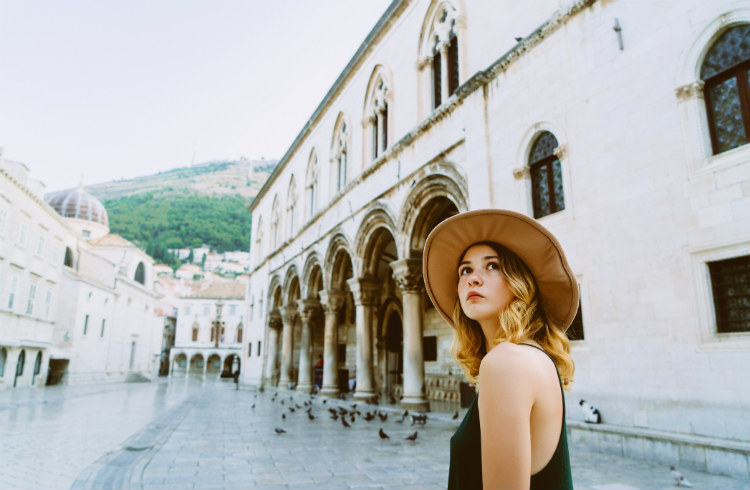
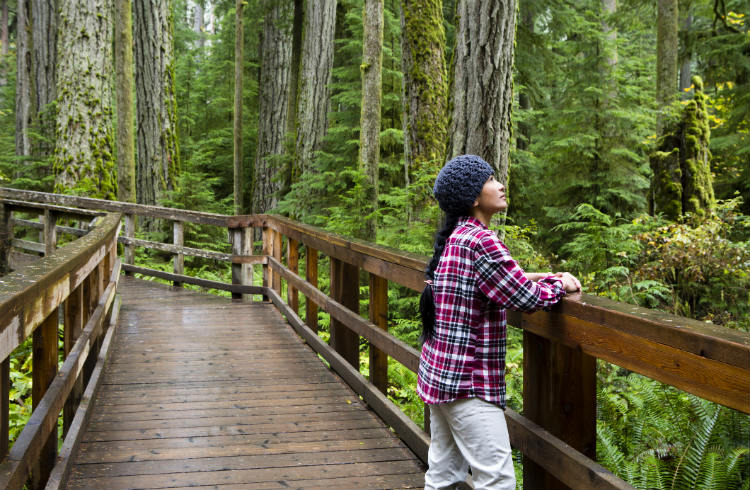
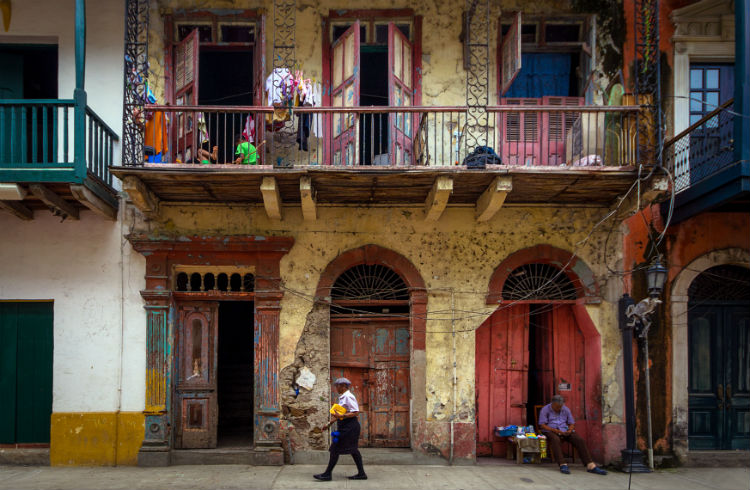
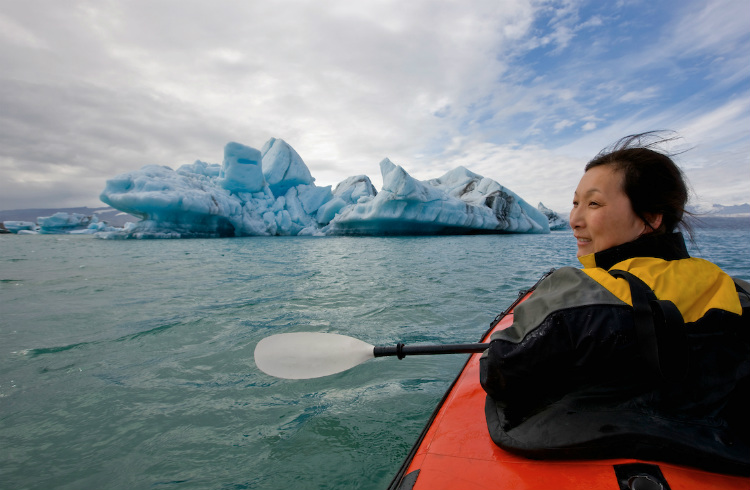
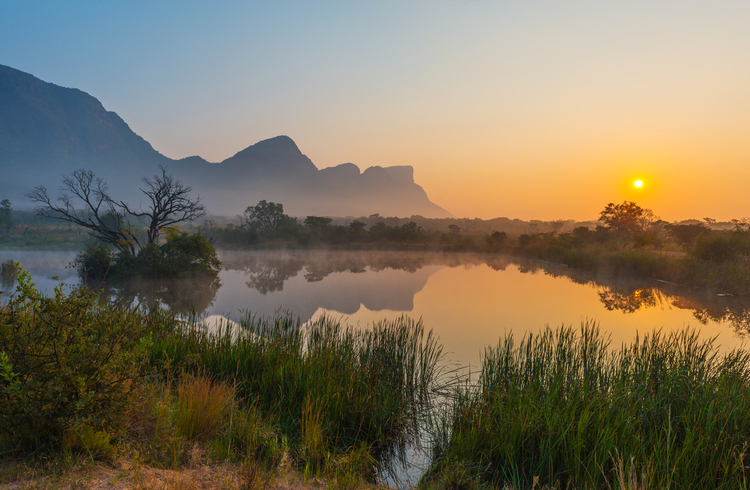
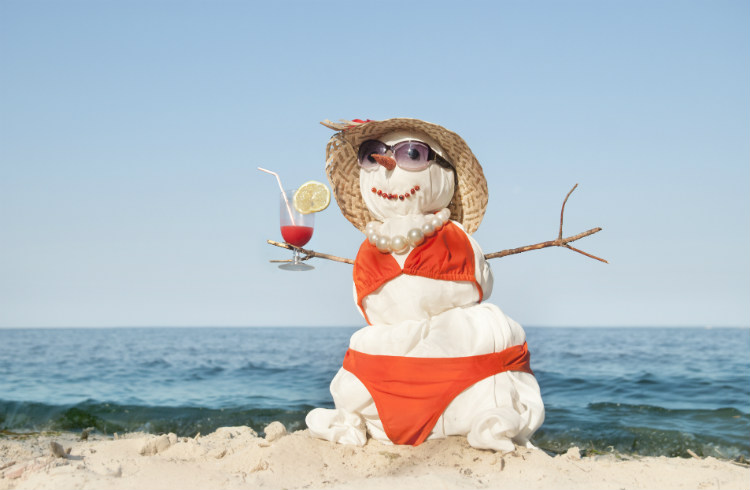
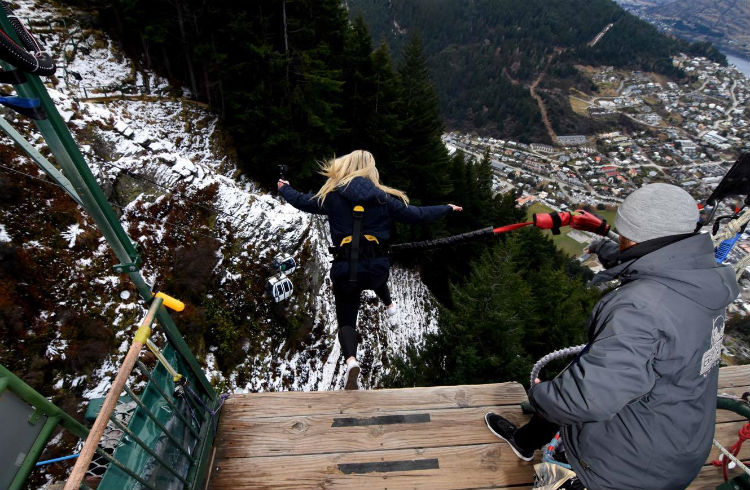
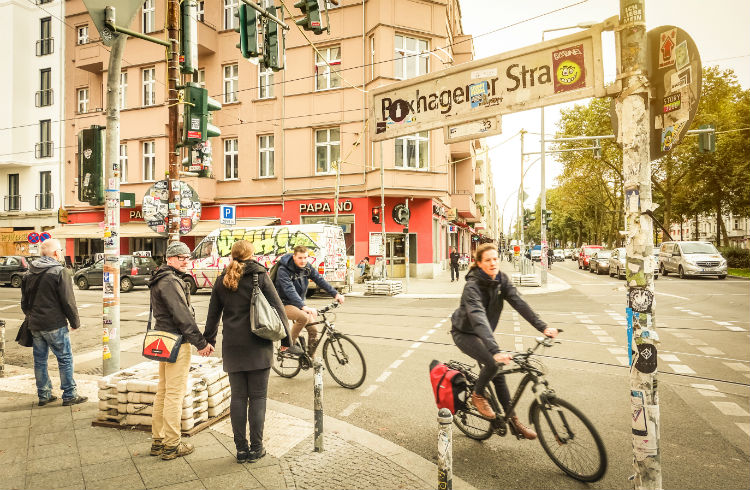
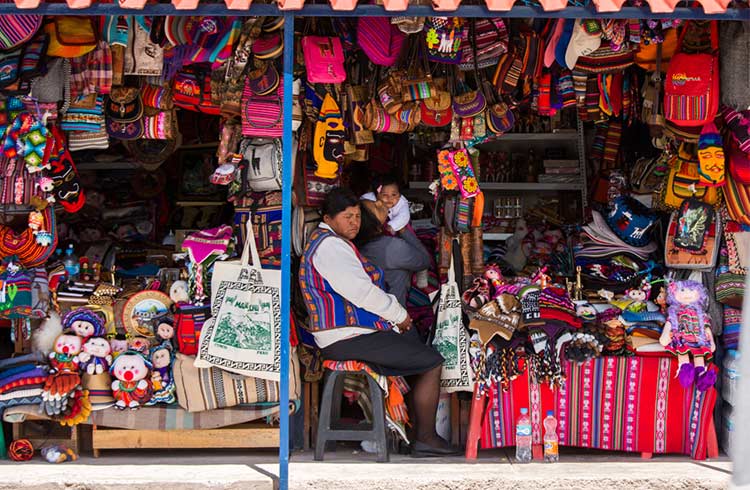
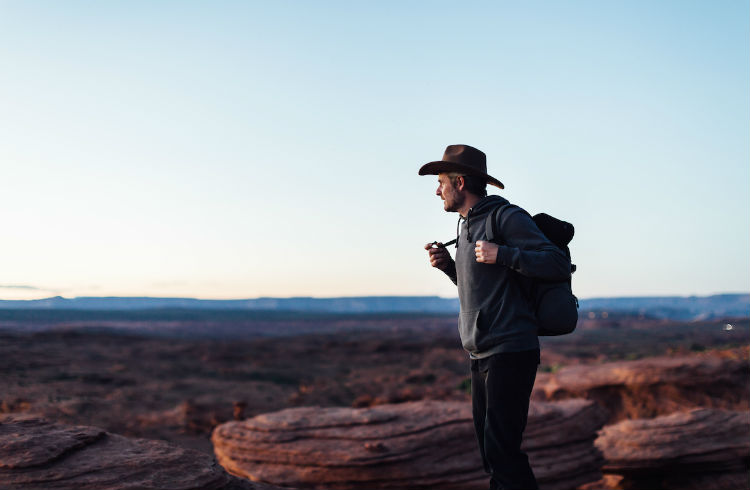
No Comments